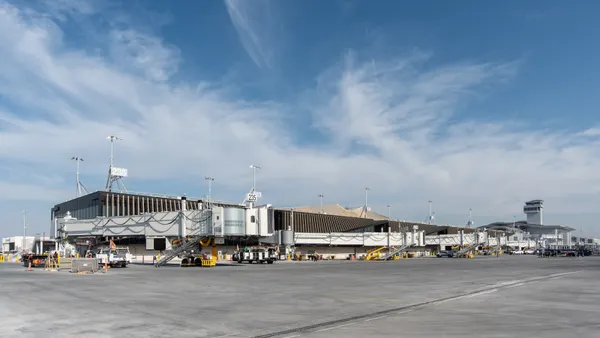Dive Brief:
- The $238 million KFC Yum Center, which opened in 2010 and is home to University of Louisville basketball, as well as sold-out concerts and other events, was not the economic slam dunk it was supposed to be, even though it was completed on time and within budget. The city of Louisville, Kentucky, is on the hook for the venue's growing debt, increasing from $573 million in 2007 to $942 million by 2017, according to the Louisville Courier Journal. Combined with the state's initial contribution of $75 million, that brings the total cost to $1 billion. The city is expected to pay $300 million toward the arena during the next 30 years.
- Decisions and events that left the city and taxpayers with this debt include the selection of a waterfront site that was $147 million more than another suitable site; foregoing an income-generating hotel on the property; a Great Recession bond deal, in a move to save the project, that increased the city's total debt to approximately $840 million; an underperforming tax increment financing district (TIF) that generated almost $14 million less than expected in the first three years; calculations based on outdated information; escalating annual debt payments; a bond refinance deal that added $100 million to the city's tab and a bad deal with the university that saw the school collect record revenue while limiting its obligation to pass that along to the city. During a lease renegotiation, the university increased the percentage it paid the city.
- The financial challenges that have plagued the Yum Center have given city officials pause about helping finance construction of a soccer stadium for MLS' Louisville City FC, even though the stadium itself would be privately funded and the city would only contribute $30 million for land and infrastructure, in addition to a small TIF that will be limited to the same. The discussion around bringing an NBA franchise to town has also stressed the importance of private investment.
Dive Insight:
According to the Harvard Political Review, cities usually end up with a raw deal when they decide to finance sports stadiums. In fact, 83% of economists polled as part of a University of Chicago study said these projects end up costing taxpayers more than the value of the local benefits they're promised. For example, the city of Detroit cut pensions for retirees, according to the International Business Times, on the same day that plans for the taxpayer-funded Red Wings hockey arena were announced.
Like in the case of the Yum Center, cities often use tax-free bonds to finance their contributions, but some lawmakers were intent on removing that ability through last year's $1.5 trillion tax reform bill. However, during the last few days of negotiations, that provision of the bill was removed.









